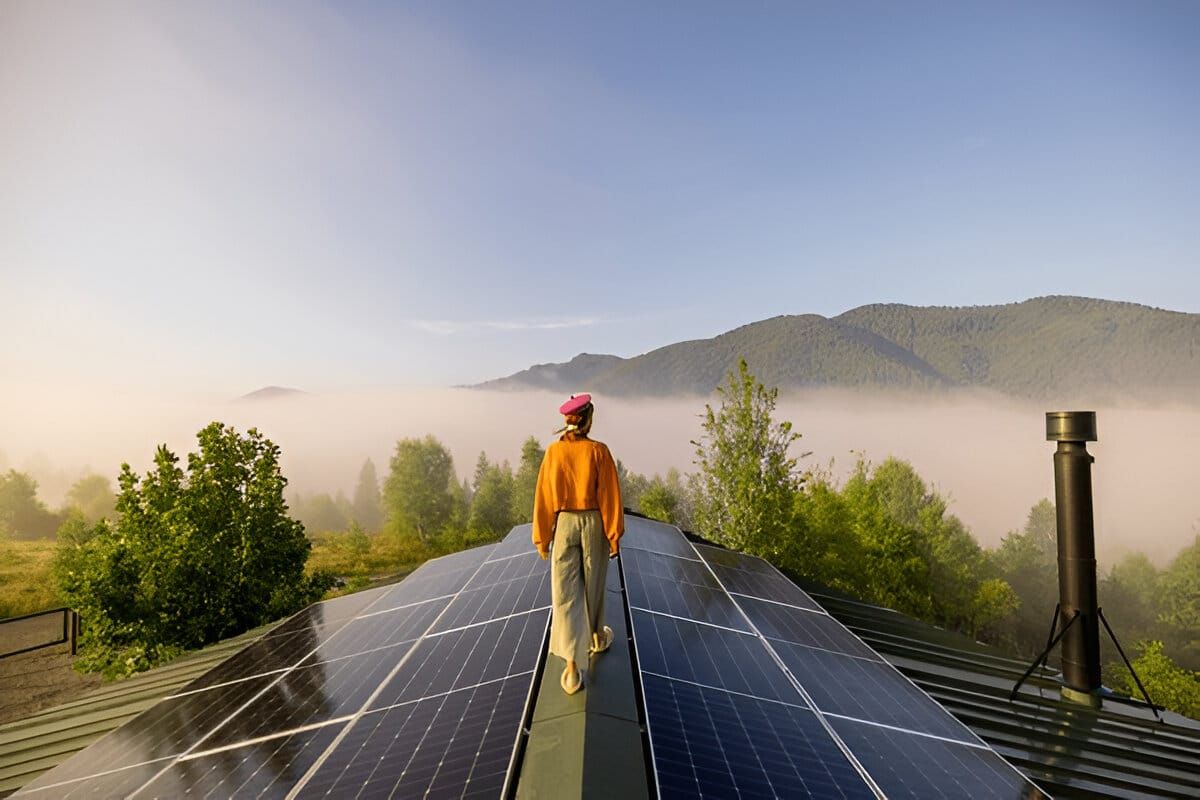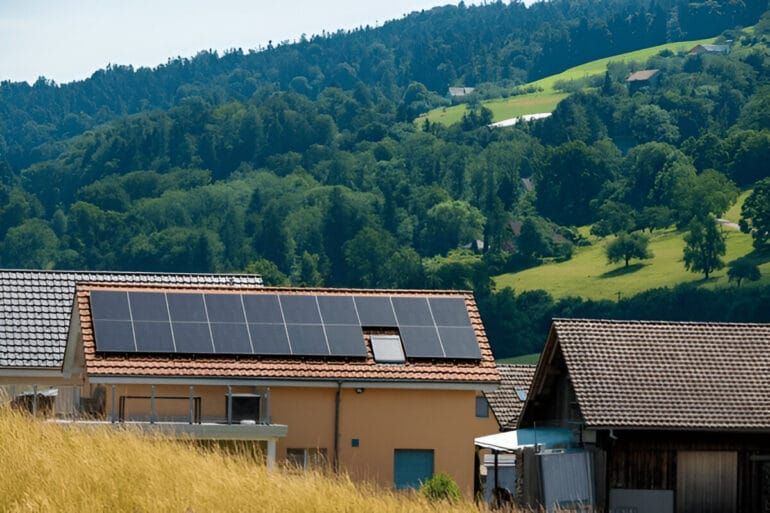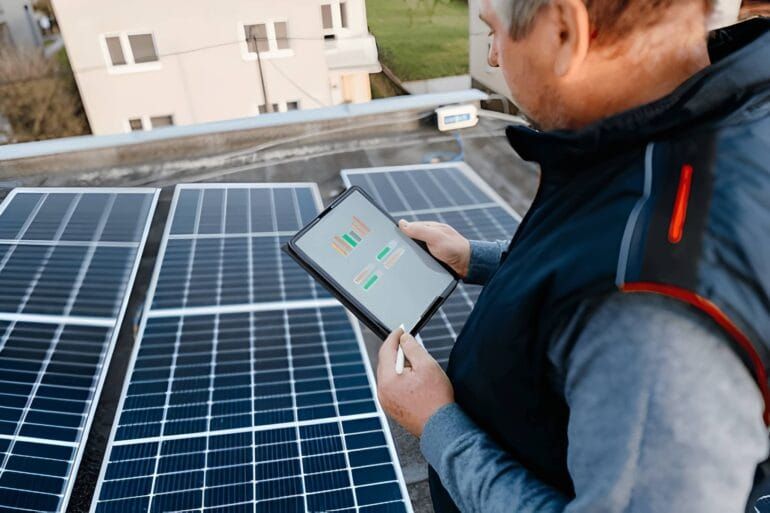With renewable energy take-up on the rise throughout Australia, rural areas are leading the way in change. The solar rural Western Australia benefits are extensive, offering up cost reductions, energy self-sufficiency, and environmentally friendly land use. For WA farmers and regional residents, solar is no longer a choice — it’s a requirement for long-term prosperity and resilience.
In this guide, we’ll explore how solar is reshaping agriculture, rural living, and local economies. We’ll also highlight practical pathways such as solar for WA farmers, agrisolar in WA agriculture, and rural Western Australia solar solutions that address energy challenges while maximizing land value.
Solar’s Role in Rural Western Australia
Growing Importance of Clean Energy
Rural WA enjoys some of the most solar irradiation in the world. The harnessing of this energy means lower power bills, improved sustainability, and greater grid resilience. Among the advantages of farm solar in WA are the use of solar energy to energize irrigation systems, barns, workshops, and even whole homesteads.
Why Rural Communities Require Solar
- Reduced production costs – Farmers and householders minimize reliance on costly grid electricity.
- Energy security – Solar with battery storage provides power reliability in outages-prone areas.
- Land optimization – With agrisolar in WA agriculture, agricultural land can produce crops and electricity simultaneously.
Solar for WA Farmers: Harvesting the Sun Twice
Agrivoltaics – A Dual Benefit System
Agrivoltaics, or agrisolar in WA agribusiness, enables crops, pollinators, and livestock to be raised under solar panels. This new way permits farmers to reap the sun twice — in food and electricity.
Benefits of Solar Rural Western Australia benefits in Agrisolar:
- Shade crops are helped by being partially covered under solar panels.
- Grazing animals under panels enhance land use.
- Growers receive revenue from both farm produce and power.
Leasing Land for Solar
WA rural farmers are also taking advantage of leasing land for solar installations. With proper arrangements, rental payments can surpass ordinary agricultural rentals, providing a secure long-term revenue stream.
WA Context Case Example
Open flat land with proximity to grid infrastructure is extremely suitable for solar applications. Most farm solar advantages WA are derived from matching energy production with agriculture so that it is sustainable without diminishing land productivity.
Rural Western Australia Solar Solutions for Homes
Solar for Regional WA Homes
The advantages of solar for regional WA homes are more than energy savings. Homeowners can:
- Reduce household energy costs.
- Less dependency on diesel generators.
- Boost property values with environmentally friendly upgrades.
With WA’s remote communities tending to have higher electricity prices, rural Western Australia solar solutions make sure that the residents have access to affordable and reliable energy.
Household Solar and Batteries
Combining rooftop solar with battery storage provides rural homes with energy independence. It minimizes stress from outages, secures energy supply, and offers peace of mind.
Solar’s Growth in Rural WA
Installation Expansion
In WA overall, solar uptake has accelerated, following the trend of the country. The cost of solar installations has decreased dramatically over the past ten years, making the systems more within reach for farmers and home owners.
Land Use and Solar
Most solar developments take place on agricultural land because of land suitability and access to infrastructure. This transition concerns balancing food production and power generation, yet agrisolar in WA farming offers a sustainable option.
Economic Advantage to Farmers and Landowners

Increased Returns from Solar Leasing
Solar developers are able to make lease payments significantly higher than standard rates for renting cropland. For WA farmers, this means:
- Long-term financial security (30+ year leases).
- Diversification of income streams.
- Less reliance on fluctuating agricultural market prices.
Effect on Land Values
As the demand for suitable farmland for solar increases, property values and rental prices rise. While this brings opportunity for landowners, it also puts pressure on farm operators leasing land. Balancing profitability and access to cheap farmland will be the key in WA.
Environmental Advantages of Rural WA Solar
Reducing Carbon Emissions
Solar switch-off minimizes fossil fuel dependence, reducing emissions towards WA’s clean energy goals.
Assisting Local Ecosystems
Agrisolar in WA farming also assists biodiversity through the provision of pollinator habitats and shaded microclimates that support local fauna and flora.
Water and Soil Conservation
Through its reduction of diesel pump and generator reliance, solar is able to decrease pollution hazards in rural water systems. Moreover, shading from solar panels could decrease water evaporation in dry areas.
Challenges of Rural WA Solar Growth
Solar Panel Disposal
With solar growth, decommissioned panel disposal is a challenge. Farmers and rural communities have to implement recycling programs to prevent soil and water pollution.
Transmission Infrastructure
Rural WA needs new grid infrastructure to manage the increased amount of renewable energy. Interconnection delays can render projects immobile, calling for effective planning.
Balancing Farmland and Solar Development
While farm solar benefits WA are clear, policymakers and communities must ensure that solar installations do not displace essential food production.
Farm Solar Benefits WA in Detail
- Cost Savings – Slash power bills for irrigation and machinery.
- Energy Reliability – Solar with batteries ensures 24/7 supply.
- Land Utilization – Generate dual income through crops and electricity.
- Sustainability – Reduce emissions and improve environmental stewardship.
- Future-Proofing – Protect against rising energy costs and climate risks.
Solar for Regional WA Homes – Daily Benefits
- Cost-Effective Power – Reduce expensive rural electricity bills.
- Robustness – Self-use energy during power outages.
- Value Addition – Increase property value with advanced energy solutions.
- Community Development – Foster group renewable projects in rural townships.
The Future Ahead: The Future of Solar in Rural WA
The future of solar power in rural Western Australia is very bright. Through ongoing technological improvements and increasing government incentives, rural communities are about to enjoy greater energy independence and more environmentally friendly lifestyles. The solar rural Western Australia advantages will only grow as innovation continues to meet local needs such as energy prices, grid stability, and environmental protection.
Smarter Solar Technology
Solar technology is no longer confined to rooftop or farm panels. The new generation of systems comprises smarter inverters, energy-efficient solar panels, and advanced storage systems. Smarter inverters enable homes and farms to use energy more wisely through real-time monitoring of consumption. While new panel technology is more resilient and efficient, offering higher output even in shaded or dusty conditions—the ideal for WA’s rough climate.
Battery technology is also rapidly improving, allowing homeowners and farmers to save surplus solar energy for utilization at night or during outages. Such reliability is important in rural areas where power outages will disrupt farm activities or everyday life.
Virtual Power Plants (VPPs)
Perhaps the most thrilling innovation on the horizon is the combination of solar with Virtual Power Plants (VPPs). A VPP combines several solar and battery systems across various homes or farms, thereby forming one big decentralized power network. Through resource pooling, rural communities are able to sell surplus power back to the grid, provide support for energy demand during peak periods, and enhance grid stability overall. This method not only increases income opportunities but also enhances local energy security.
Community Solar Sharing Programs
A further opportunity is community-based shared solar programs. In such projects, several residences or small businesses share one solar installation. For local homeowners who do not have appropriate roofs or money to invest in a personal system, shared solar projects offer an inexpensive option to connect to clean energy. Such initiatives also foster stronger community connections while disseminating the rural Western Australia solar solutions more broadly.
Government Incentives for Rural WA Solar
Government incentives are a significant factor in increasing the adoption of solar power throughout rural Western Australia. For farmers and regional residents, the initial cost of installing solar panels or supplementing with battery storage seems exorbitant. For this reason, both state and federal initiatives offer rebates, subsidies, and low-interest loans that minimize the costs considerably.
Those incentives make solar an affordable choice not just for big agricultural corporations but also for small farms and residences. For farmers, it translates into fueling irrigation pumps, barns, and equipment with low-cost clean energy. For homeowners in the region, it provides the opportunity to reduce household expenses while adding value to property.
By reducing barriers to entry, government assistance makes the solar rural Western Australia advantages available to all. This strategy promotes faster clean energy take-up, enhanced rural resilience, and puts communities in a position to prosper in a low-carbon, sustainable future.
Conclusion
The solar rural Western Australia advantages spread over economic, environmental, and community factors. From solar for WA farmers tapping agrisolar solutions to solar for rural WA homes providing cost-affordable and reliable power, the benefits are endless. Farmers get diversified income, homeowners achieve energy independence, and rural communities build their resilience.
For customers wanting to go solar, Easy Solar offers complete rural Western Australia solar solutions — from high-quality solar panels and inverters to battery storage and system servicing. With experience in residential, commercial, and agricultural solar, Easy Solar enables farmers and homeowners to maximize the power of renewable energy. By going solar today, rural WA can build a brighter, more sustainable future.








